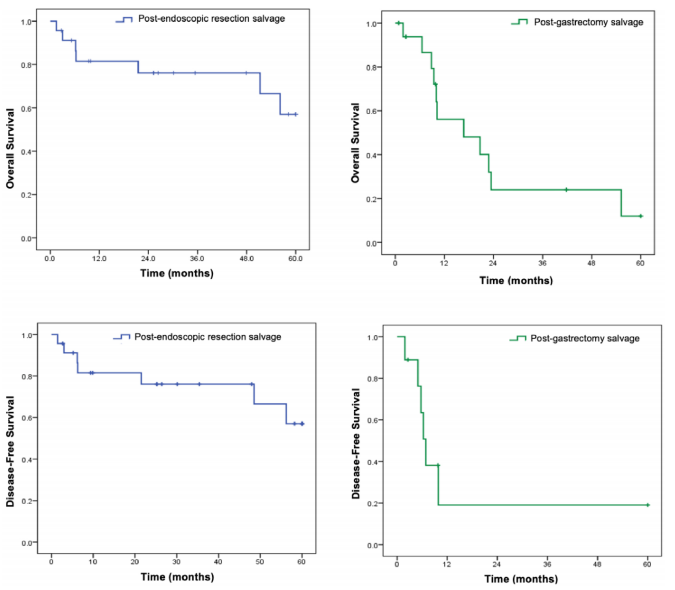ABSTRACT - BACKGROUND:
Salvage surgery (SS) is defined as surgical resection after the failure of the first treatment with curative intent.
AIM:
The aim of this study was to report the experience of a reference center with SS for stomach adenocarcinoma.
METHODS:
This is a retrospective study of patients with gastric cancer (GC) operated on between 2009 and 2020.
RESULTS:
Notably, 40 patients were recommended for salvage gastrectomy with curative-intent treatment. For analysis purpose, patients were divided into two groups: 23 patients after endoscopic resection and 17 patients after gastrectomy. In the first group, all patients underwent R0 resection, their average hospital length of stay (LOS) was 15.7 days, and 2 (8.6%) patients had major complications. During the average follow-up of 37.2 months, there was only one recurrence. The median overall survival (OS) was 46 months. In the postgastrectomy group, 9 (52.9%) patients were rescued with curative intent, the average hospital LOS was 12.2 days, and 3 (17.6%) had major complications. In a mean follow-up of 22 months, five patients relapsed. Median OS and disease-free survival were 24 and 16.5 months, respectively.
CONCLUSION:
SS in GC offers the possibility of long-term disease control and increased survival rate with an acceptable complication rate.
HEADINGS:
Stomach Neoplasms; Gastrectomy; Endoscopic Surgical Procedures; Neoplasm Recurrence, Local

 Thumbnail
Thumbnail
